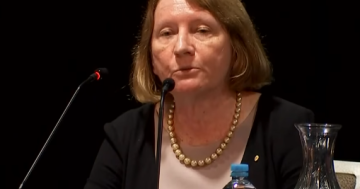
Leo Hardiman will leave his post on 19 May 2023. Photo: Supplied.
Commonwealth Freedom of Information Commissioner Leo Hardiman has quit less than a year into his five-year appointment, citing a seriously backlogged system as the reason.
Claiming his authority and powers do not extend to being allowed to overhaul the system he has to work with, Mr Hardiman handed in his resignation on Monday (6 March).
He announced his move by posting a statement on LinkedIn.
He said while he had been leading significant change, there was only so much he could do.
“One significant purpose of these changes is to enable larger numbers of IC (Information Commissioner) review matters to be actively managed to conclusion, so as to reduce the current backlog of IC reviews and promote more timely access to government-held information,” he said.
“The Freedom of Information Branch in the Office of the Australian Information Commissioner has shown enormous commitment to the implementation of these changes and the purpose of increasing timeliness of information access …
“Further changes are, however, necessary in my view to ensure that the timeliness of IC reviews and, consequently, access to government-held information, is increased.
“The making of those changes is not within the powers conferred on me as FOI Commissioner.
“I have come to the view that I will not be able, in the absence of those changes, to increase the timeliness of IC reviews and access in a way that best promotes the objectives of the FOI Act.
“I have accordingly decided the most appropriate course is to resign my appointment.”
FOI requests responded to outside the statutory 30-day period have increased from 11.5 per cent in 2011-12 to 22.5 per cent in 2021-22.
Even worse, requests more than 90 days late, which make up one in 10 requests, have now increased 10-fold.
Mr Hardman was appointed in March last year and was the first permanent FOI commissioner in almost eight years.
While prime minister, Tony Abbott tried to abolish the office; although unsuccessful, he did manage to downsize it significantly, which his successors seemed pleased about.
Mr Hardiman’s resignation takes effect on 19 May.
Until then, the commissioner said he would continue to work on the changes the system needs.
Mr Hardiman brought to the office extensive legal and public sector experience from the Australian Government Solicitor where he was formerly deputy chief general counsel and national leader in the Office of General Counsel.
With more than 30 years’ experience advising the Commonwealth on a range of legal matters, the appointment was widely praised.
In 2020 Mr Hardiman was awarded the Public Service Medal for “outstanding public service through the provision of legal services to the Commonwealth”.
Attorney-General Mark Dreyfus is yet to comment.
Information policy deals with how the government handles and uses the information that it holds – otherwise known as public sector information.
The Freedom of Information Act 1982 states that information held by the Australian Government is a national resource and is to be managed for public purposes.




















